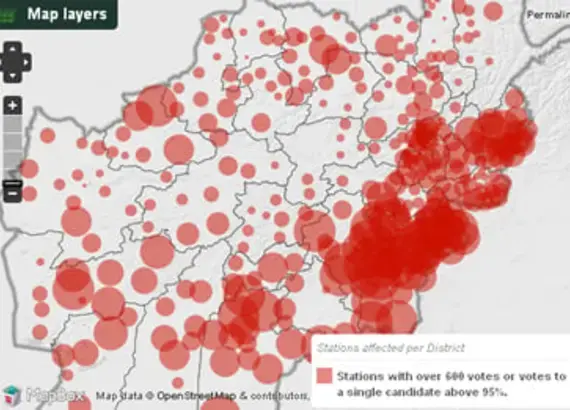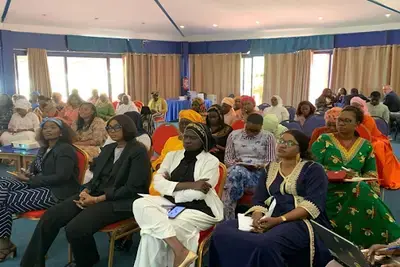
Success Story
New Technologies Create Opportunities, Risks in Democracy Support
In the decade since the founding of the Community of Democracies, which met June 2-4 in Poland, a major change has been the explosion of technology and the tools it has created, both for those supporting the free flow of ideas and other democratic values and for authoritarian states interested in the opposite, curtailing information and suppressing human rights.
Speaking on a panel in Krakow, NDI's chief technology officer, Chris Spence, explored the role of technology in democratic development and the risks its use poses in closed societies.
"Our view is that technologies are clearly a net positive for democracy...because of the important role [they] can play in consolidating democracy in fragile and transitional democratic states," he said. In such places, democracy, which hasn't fully taken root, "risks backsliding toward authoritarianism if nascent democratic institutions are not strengthened. Creative uses of technology in these environments can and do help make these institutions more efficient, accessible, transparent and effective and thus help democracy deliver for their citizens."
Spence noted that in the early 1990s NDI began to recognize the important role technology plays in politics and democratic development, and began to develop creative ways to integrate technology tools and approaches into its democracy support programs.
He cited two current NDI programs:
- A tool, www.afghanistanelectiondata.org, for analyzing Afghanistan election results data in the aftermath of last summer's flawed presidential election. It was developed to pinpoint fraud, to try to hold the government accountable for better elections, and to help civic groups and political parties oversee the next round of parliamentary elections slated for September. Embracing an "open data" approach, the site uses information provided by the Afghanistan government in a 2,500-page PDF document that was difficult to use and combines that with demographic, ethnographic, topographic and security information from other sources. The site makes the data easier to analyze using new visualization tools including maps, graphs and other data filtering tools.
- A Citizen Hotline program in Uganda that allows citizens to use text messaging to report problems with voter registration for the country's 2011 elections that will be combined with a domestic election monitoring program on election day. The Hotline uses a technique, known as "crowd sourcing," to pinpoint the location of complaints. This is an evolving new approach to increasing citizen participation and oversight of elections and other political processes, including human rights monitoring, budget monitoring, and any number of others.
"The introduction of these tools in the absence of good civic or political organization is not enough."
Spence noted that while technology tools are useful and frequently necessary, to be most effective in bringing about political reform, they must be used to support well-organized political activities by strong organizations, typically civic groups or political parties, with long-term plans for change. "The introduction of these tools in the absence of good civic or political organization is not enough," he said.
Spence also addressed the risks associated with the introduction of technology tools in authoritarian states, which usually have technological advantages over their citizens. "In closed societies, citizens and civic groups are at a technological disadvantage and need to be very deliberate in building communication strategies that take into account a full understanding of risk," he said. "They must include a combination of the right technologies and procedures that are designed for their specific environment."
The “New Technologies for Democracy” panel was moderated by Teymoor Nabili of Al-Jazeera. Panelists included Matt Harrison from the Prometheus Institute; Walid Al-Saqaf, an online journalist and activist from Yemen; Susan Pointer, director of public policy and government relations at Google for Southern and Eastern Europe, the Middle East and Africa; and Wael Abbas, a well-known Egyptian blogger and activist.
Related:
Pictured above: A map from www.afghanistanelectiondata.org
Published on July 16, 2010



